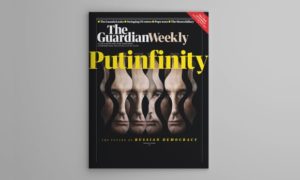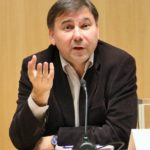
The Guardian
Mikhail Mishustin, Russia’s new prime minister, made his reputation collecting money for Vladimir Putin. His next challenge will be working out ways to spend it, The Financial Times reports (HT:FDD).
The timing and the nature of the constitutional amendments make it clear that Mr. Putin perceives his regime as in crisis and is doubtful about the continued viability of a system of personal rule when he is no longer around, notes Ivan Krastev, the chairman of the Center for Liberal Strategies, a permanent fellow at the Institute for Human Sciences in Vienna and the author, most recently, of “The Light That Failed: A Reckoning,” with Stephen Holmes.
He knows perfectly well that what his apologists trumpet as political stability is in reality political stagnation, and that popular support for the regime is in decay. It is quite possible that last summer’s protests in Moscow and the growing apathy of his supporters impelled the president to offer reform proposals and ask that any changes be legitimized by popular vote. It won’t come as a shock if the referendum coincides with early parliamentary elections this autumn, thus starting the power transition this year, he writes for The New York Times.
 Most commentators are dismissive of any possible liberalizing effects of the suggested amendments, adds Krastev, (right), a contributor to the NED’s Journal of Democracy. “But the long-term consequences of the proposed changes are harder to predict. Surprising changes often have surprising consequences.
Most commentators are dismissive of any possible liberalizing effects of the suggested amendments, adds Krastev, (right), a contributor to the NED’s Journal of Democracy. “But the long-term consequences of the proposed changes are harder to predict. Surprising changes often have surprising consequences.
Should UK premier Boris Johnson accept Putin’s invitation to a Moscow parade marking the 75th anniversary of the end of the second world war? The optics risk being terrible. […]Relations are still fraught, with Moscow refusing to hand over those accused of carrying out the attack. Yet concerns not to be co-opted into a Kremlin photo opportunity must be weighed against the need for a UK, which departs the EU this week, to show it is still a global player, The Financial Times adds (HT:FDD).
Putin’s proposed Constitutional changes went from non-existent to fully drafted in less than a week. Prime Minister Mikhail Mishustin names a new Cabinet that looks a lot like the old one. And Russia gets a new Prosecutor General as Yury Chaika gets a new job. It seems we’ve got some more data points to look at as Putin’s Operation Regime Preservation gathers steam, CEPA’s Brian Whitmore writes.
Listen to episode 56 of the Power Vertical Podcast as Whitmore is joined by CEPA’s Maria Snegovaya – a former NED Penn Kemble fellow – and Donald N. Jensen to dissect the latest from the Kremlin.







